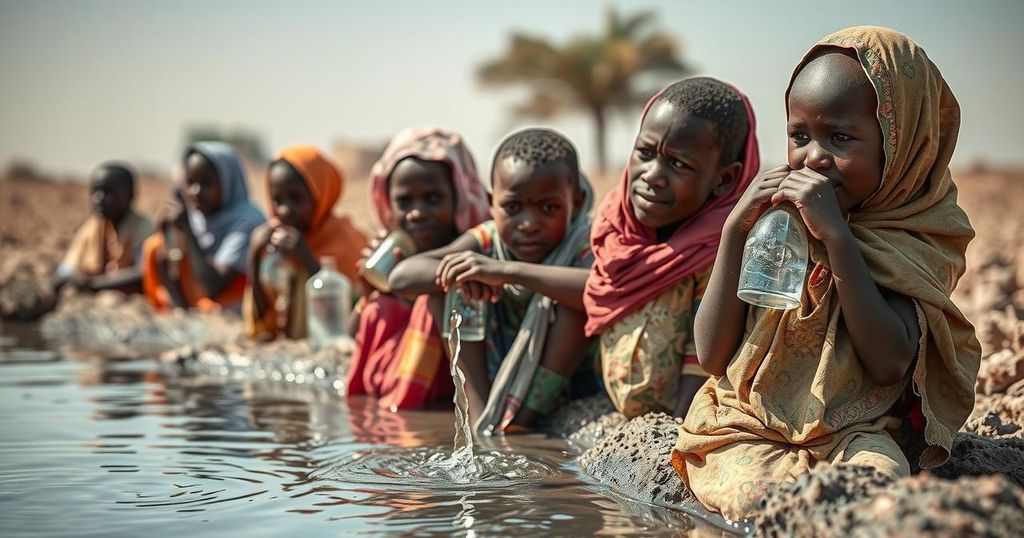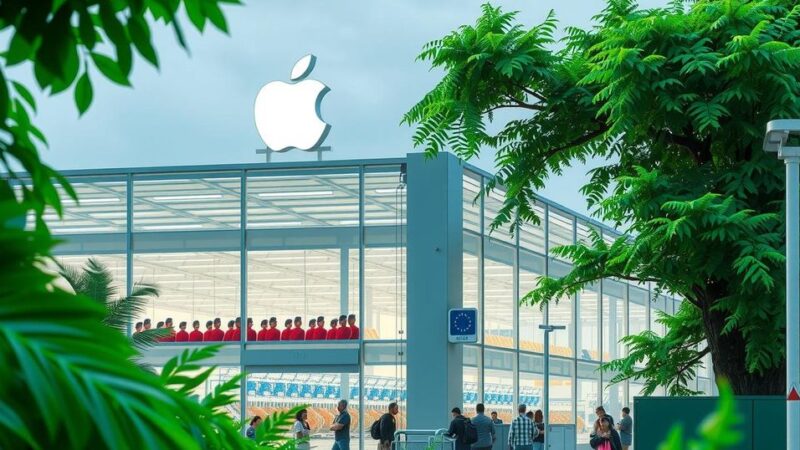Sudanese refugees in Chad, particularly in the Tanqori camp, are suffering from a severe water crisis, receiving only limited water supply daily. Many are forced to use contaminated sources, leading to health risks, especially for children. Relocated from the more resource-abundant Adri camp due to tensions with locals, these refugees are now urgently in need of basic necessities, prompting calls for humanitarian aid.
The water crisis in eastern Chad has exacerbated the plight of Sudanese refugees, particularly those relocated to the Tanqori camp from the Adri camp. Aisha Adam Ishaq, a refugee who fled violence in El Geneina, West Darfur, reported receiving only 16 liters of water daily, compelling her and others to resort to contaminated water sources. The relocation, enforced by Chadian authorities citing tensions with local communities, has left the refugees in a precarious position as they navigate a lack of essential services and ongoing conflict with host communities.
The shortage of potable water has spurred disputes between refugees and local residents, with humanitarian organizations present in insufficient numbers. Fatima Adam Idris lamented the absence of basic necessities, stating that they have been carrying water for a year without respite. Amira Mustafa Ishaq emphasized the desperate need for clean water, revealing that many depend on family support due to limited aid in the area.
The UNHCR indicates that Chad currently shelters over 600,000 Sudanese refugees from various conflicts, with an urgent appeal for assistance highlighting the critical conditions within these camps. The grim reality faced by these individuals underscores the urgent need for humanitarian intervention and support.
The article highlights the severe water crisis faced by Sudanese refugees in Chad, particularly those relocated to the Tanqori camp from the Adri camp. The influx of refugees from Darfur, especially during recent conflicts, has led to overcrowded camps and strained resources. The situation has become dire, with many refugees lacking access to clean water and essential services, leading to health risks and conflicts with host communities. The United Nations High Commissioner for Refugees (UNHCR) has expressed concern over these conditions and called for increased humanitarian efforts.
In conclusion, the ongoing water crisis in Chad has significantly worsened the hardships for Sudanese refugees, particularly those in the newly established Tanqori camp. The forced relocation from Adri camp has deprived them of essential services and has led to conflicts due to resource scarcity. With over 600,000 refugees in Chad and limited support, immediate humanitarian intervention is crucial to alleviate their suffering and address their basic needs, particularly access to clean water.
Original Source: sudantribune.com






